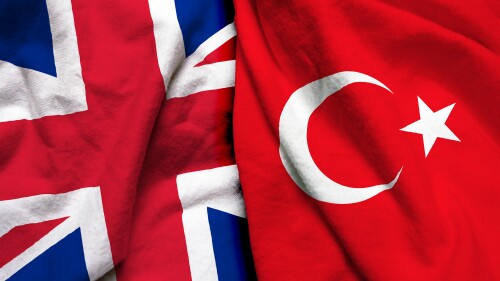Between 4 million and 6 million Iranians live outside of Iran, with tens of thousands working in military forces and government organizations in countries that the Islamic Republic of Iran considers hostile. Additionally, many Iranians work in universities, Big Tech companies, and information technology firms in North America and Western Europe. Although many do not wish to work for Iran, the Iranian regime seeks to exploit them for economic, political, and intelligence purposes.
Iran has perhaps the world’s strictest interpretations of citizenship. While Russia makes its former citizens jump through seemingly endless bureaucratic hoops to renounce citizenship, up to and including proof that they owe no library books or fines, Iran requires an act of the Majlis to recognize the renunciation of any individual’s citizenship. This is one reason why so many Americans and Europeans of Iranian descent travel to Iran on Iranian passports; the regime simply will not let them in without them. That they charge exorbitant prices for passports and basic documents is simply icing on the cake.
The Iranian intelligence ministry and the Islamic Revolutionary Guard Corps’ intelligence wing identify Iranians for espionage in the international tech sector, foreign governments, and Western military forces in two ways. First, they use databases that track Iranian diplomatic missions in North America and Europe. Prior to entering the country, the regime flags individuals who may be candidates for recruitment or have their passports confiscated and held hostage.
Second, upon arrival, they force Iranian passengers traveling on flights from Europe to fill out questionnaires about their occupation, place of residence, and work, to aid the investigation and their potential recruitment as spies. Those who have families or property in Iran might receive promises of exemption from property seizure to encourage cooperation. Some diaspora Iranians seek to transit through Turkey, Qatar, or the United Arab Emirates to conceal their American citizenship, but this seldom works; Iranian intelligence is thorough.
Dual-nationality Iranians recruited as spies primarily gather intelligence about regime adversaries, including Jewish organizations and businessmen. They play a strategic role in spying on the Iranian diaspora. The information they gather helps Iranian intelligence carry out psychological operations and physical attacks by contracting with local criminals such as members of drug gangs. The intelligence service also trains dual nationals to infiltrate Iranian opposition groups. Their objective is to achieve leading positions within these groups, spy on their members, and sow division. This tactic successfully prevented opposition unity during the “Woman, Life, Freedom” protests following the murder of Iranian Kurdish woman Mahsa Amini two years ago in police custody, after her detention for allegedly violating the regime’s dress code.
Iranian Americans, as a group, are wildly successful, reaching the pinnacle of industry, government, military, and academe. Many no longer wish to return to Iran, but those who do visit Iran pose a potential threat to U.S. security if the regime coerces them to do its bidding. The FBI and its European corollaries must be realistic about the threat, even if the Iranian diaspora involved is more victim than enthusiastic participant.







